Conversations with Anorexics
CONVERSATIONS
WITH
ANOREXICS
A COMPASSIONATE AND HOPEFUL
JOURNEY THROUGH
THE THERAPEUTIC PROCESS
HILDE BRUCH
EDITED BY
Danita Czyzewski and Melanie A. Suhr

A JASON ARONSON BOOK
ROWMAN & LITTLEFIELD PUBLISHERS, INC.
Published in the United States of America
by Rowman & Littlefield Publishers, Inc.
A wholly owned subsidiary of The Rowman & Littlefield Publishing Group, Inc.
4501 Forbes Boulevard, Suite 200, Lanham, Maryland 20706
www.rowmanlittlefield.com
PO Box 317
Oxford
OX2 9RU, UK
Copyright 1988 by the Executors of the Estate of Hilde Bruch
Printed by arrangement with Basic Books, a division of HarperCollins Publishers, Inc.
First paperback edition 1994
First Rowman & Littlefield edition 2006
All rights reserved. No part of this publication may be reproduced, stored in a retrieval system, or transmitted in any form or by any means, electronic, mechanical, photocopying, recording, or otherwise, without the prior permission of the publisher.
British Library Cataloguing in Publication Information Available
Library of Congress Cataloging-in-Publication Data
Library of Congress Catalog Card Number: 94-70808
ISBN: 1-56821-261-5 (paperback : alk. paper)
Printed in the United States of America
 The paper used in this publication meets the minimum requirements of American National Standard for Information SciencesPermanence of Paper for Printed Library Materials, ANSI/NISO Z39.48-1992.
The paper used in this publication meets the minimum requirements of American National Standard for Information SciencesPermanence of Paper for Printed Library Materials, ANSI/NISO Z39.48-1992.
Contents

by Theodore Lidz, M.D.
Foreword

by Theodore Lidz, M.D.
Sterling Professor of Psychiatry, Emeritus, Yale University
I WRITE the foreword to this posthumous work of Hilde Bruch with both sorrow and pleasuresorrow, because the world has lost a great teacher and a fine human being, and pleasure in knowing that her valuable contributions to the understanding and treatment of anorexia nervosa will live on in this fine book. One of psychiatrys great clinical investigators and teachers, Hilde Bruch not only had a profound influence on psychiatry and internal medicine, but she was also able to convey her knowledge to the nonprofessional through engagingly written books. She was blessed with what Nietzsche termed the bestowing virtue. Her curiosity and perceptivity about human nature were so great that her wisdom about people and their difficulties overflowed and enlightened others. Dr. Bruch was best known for her work on eating disorders, opening new vistas in the understanding of obesity and anorexia nervosa, but she was also an authority on the treatment of schizophrenic conditions, and this knowledge and skill contributed to her success with anorexic patients.
Hilde Bruch was my friend. My wife, Dr. Ruth Lidz, and I feel honored that she regarded us as her very close friends. We first met at the Phipps Clinic in Baltimore, where Ruth and I were investigating the family backgrounds of schizophrenic patients, and Dr. Bruch was completing her study of the family frame of obese children. We thus shared an interest in the family environments in which patients grew up, a topic on which few (if any) other psychiatrists focused their attention prior to World War II. Over the years we remained close, personally and professionally, freely sharing our findings and ideas, to our mutual benefit.
Although severely handicapped during the last several years of her life by Parkinsons disease, Dr. Bruch would not let the immobility that ended her career as a therapist interfere with her teaching. Resident psychiatrists at the Baylor College of Medicine cherished her as a supervisor of psychotherapy and gladly visited her at home for guidance. Dr. Bruch remained intent on completing this volume, transmitting her increasingly feeble voice into her dictating machine before she was finally silenced by heart failure. When I spoke to her on the phone just a few days before she died, she let me know in a scarcely audible voice that she knew her end was near, but, she said with pride, I finished dictating the book before I went into the hospital. I do not think that this great woman could let herself die until she had finished conveying what she had to teach. Those of us who cherished Hilde Bruch are relieved that her full and fruitful life ended before her increasing infirmities became too burdensome to bear.
Hilde Bruch received her M.D. from the University of Freiburg in 1929, and then obtained physiological research training in Kiel and pediatric training in Leipzig. She was well launched on a career in pediatric physiology in her native Germany, but when Hitler came to power, she left almost immediately for England. She then spent a year in a London child guidance clinic before emigrating to the United States. She obtained a position at Babies Hospital at the Columbia-Presbyterian Medical Center in New York, where Professor Rustin MacIntosh, the chairman of the department, recognized her brilliance and soon asked her to establish a pediatric endocrine clinic. Whereas some clinical investigators become famous by discovering a new disease or syndrome (which is then named after them), Dr. Bruch first gained prominence in 1939 by eliminating a famous but puzzling syndrome. Froehlichs syndromesevere obesity, small genitalia, and sluggish behavior in young boyshad been attributed to an unknown dysfunction of the pituitary gland. Dr. Bruch demonstrated that the boys were fat from overeating and lack of activity, and that their genitals were of normal size but simply appeared to be very small because pads of fat obscured them. The finding led to an epoch-making paper, Obesity in Childhood: V: The Family Frame of Obese Children, written with Grace Touraine. In it Dr. Bruch related the childs obesity to the mothers reaction to an unwanted child, for whom she substituted food for love, keeping him close to her at home because of her fear that he would be injured playing with other children. The mothers behavior was usually related to her own deprived childhood and to the passivity of the childs father. The study was among the first to relate a psychiatric or physiological disorder to the family environment in which a person has grown up. These early studies of obesity were characteristic of the skepticism of established but unproven concepts that marked Dr. Bruchs entire career.
In 1941 her recognition of the importance of emotional and intrafamilial factors to the etiology and treatment of illnesses led Dr. Bruch to pursue psychiatric training. She started her residency under Dr. Adolf Meyer at the Henry Phipps Psychiatric Clinic at the Johns Hopkins Hospital in Baltimore. Dr. Meyer was not only the most distinguished American psychiatrist of the time but a pioneer in psychosomatic medicine; he was also one of the few psychiatrists who seriously considered that schizophrenic disorders could be the result of critical deviations in personality development and thus amenable to psychotherapyan orientation shared by Dr. John Whitehorn, who succeeded him while Dr. Bruch was a resident. At Johns Hopkins, Dr. Bruch also worked with Dr. Leo Kanner in child psychiatry and studied several children whom he had described as autistic; she disagreed with some of Dr. Kanners ideas about the origins of the condition, but the study of psychotic children was to remain a major interest for her.
Next page

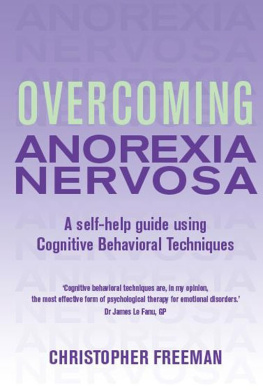
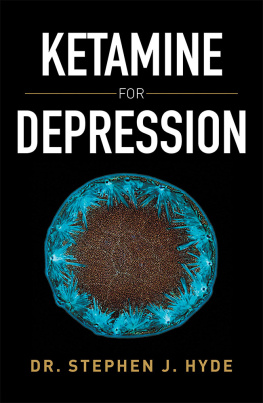

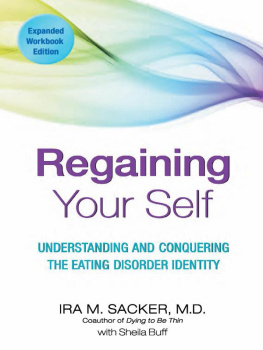
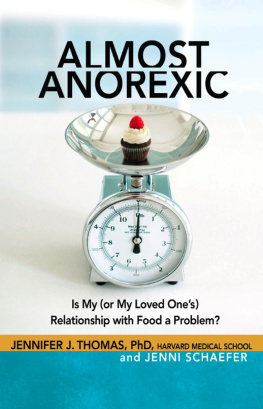
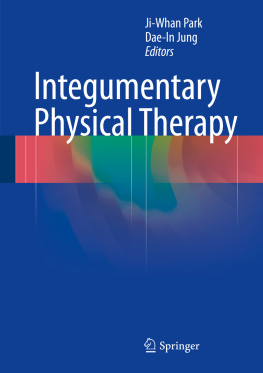
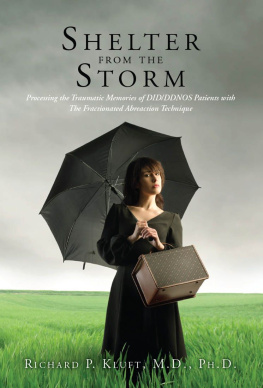

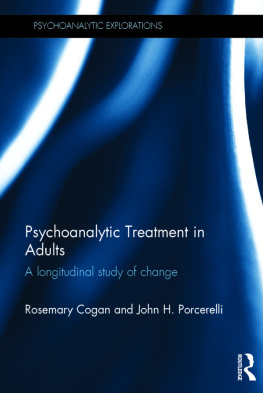

 The paper used in this publication meets the minimum requirements of American National Standard for Information SciencesPermanence of Paper for Printed Library Materials, ANSI/NISO Z39.48-1992.
The paper used in this publication meets the minimum requirements of American National Standard for Information SciencesPermanence of Paper for Printed Library Materials, ANSI/NISO Z39.48-1992.